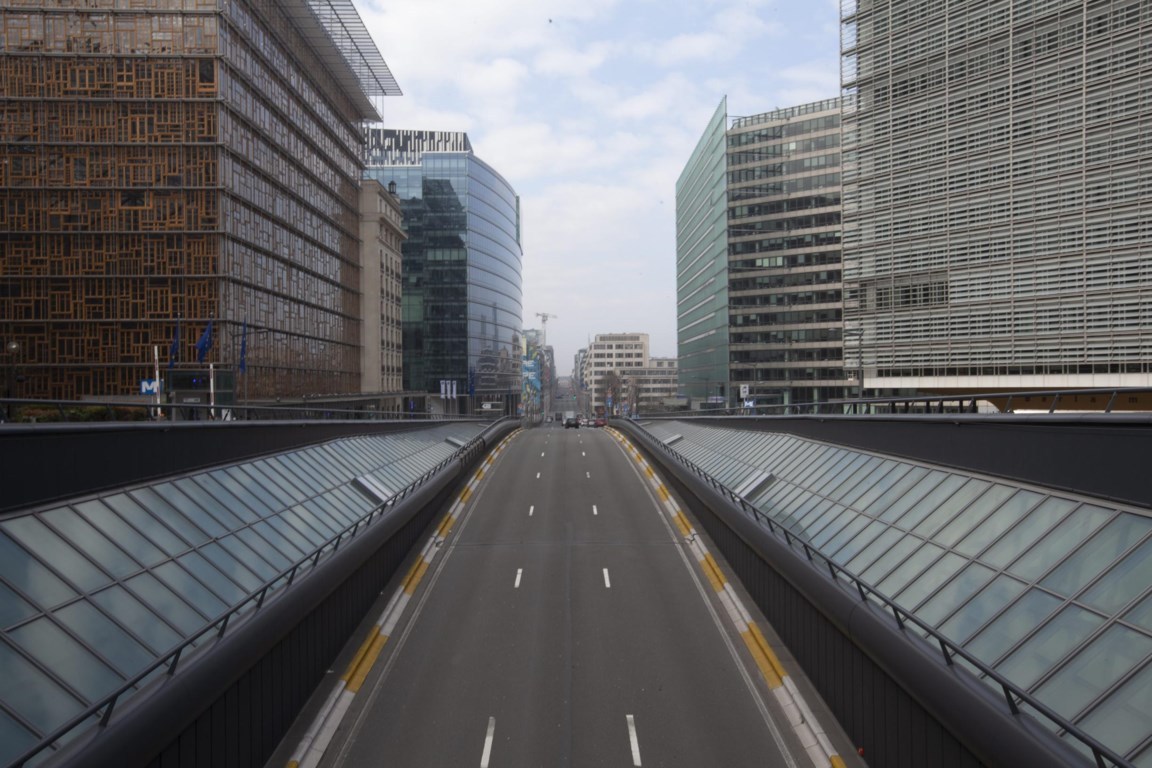The European Commission has announced that it will not be renewing several of its current ongoing leases in some buildings across the city in an ongoing effort to halve and centralise its workspaces in Brussels between now and 2030.
European Budget and Administration Commissioner Johannes Hahn confirmed previous rumours regarding the Commission halving its buildings during a press conference alongside State Secretary for Urban Development Pascal Smet and Brussels Minister-President Rudi Vervoort on Tuesday.
"The European Commission is constantly adapting its buildings policy to new realities and needs. We intend not only to make better use of every square metre, but we also want to make every square metre greener," a Commission spokesperson told The Brussels Times.
The Commission will significantly reduce the number of its buildings in the course of the next ten years, however, the overall surface will be reduced by just one-fourth: from 780.000m² to 580.000m².
Instead of having its buildings spread across the city, it will merge similar policy departments into bigger buildings, mainly around the Schuman and Rogier area.
Diversifying the European Quarter
This closure of several of the Commission's offices in the European Quarter is expected to free up space which can be used to make the area more diverse.
"The European district was very monofunctional, which wasn't good for the European Institution employees nor for the people of Brussels, as it was often deserted during the summer months," Smet's spokesperson Damiaan De Jonge told The Brussels Times.
"Now, they are playing a role in Brussels' goal to create a diverse neighbourhood with mixed functions, where you can eat and drink, where office and housing buildings stand side by side," he said. "This will help make our idea to create a city for the people a reality."
Related News
- European Commission wants to vacate half of its buildings by 2030
- EU quarter residents want the EC to help improve neighbourhood
- Before the Bubble: Brussels in 1908
According to a Commission spokesperson, the change will help the Commission save money, reduce its carbon footprint, and allow staff to collaborate better.
De Jonge added that this will also be an advantage for the Commission and its employees, as many people who work there could also start living in the same area.
During Tuesday's meeting, the Commission hinted that it would be interested in centralising certain departments in the Northern Quarter of the city, a largely empty business district that is unpopular with many of the locals, to make this area more lively.
New office spaces, new office concept
The Commission has been considering downsizing for a long time, but this idea was boosted by many people working from home full-time, and the demand from employees to continue teleworking even after the pandemic.
"Like all public and private organisations, we are now looking at the most suitable balance between home and office work for the longer term," a Commission spokesperson said.
However, even before teleworking became the new normal, the Commission wasn't using the entirety of its office space capacity, according to De Jonge, as "there are always people on a mission or on holiday or sick."
"They also had so many different buildings, and each building needs to be equipped with a reception and security area, so by combining different offices into one building, this will make things more efficient for them," De Jonge said.
In the coming years, the concept and purpose of offices are expected to change, also for the Commission, which "will adapt its buildings to the generalised use of teleworking," using its offices for interactions, meetings, and specific tasks.
The reviewed building policy will be rolled out in collaboration and consultation with Commission staff and the authorities in Brussels, the Commission spokesperson added.
De Jonge added that it was "clear during the meeting that both parties are on the same page," and that Urban Brussels, led by Vervoort and Smet, would "support the Commission, as it is good for Brussels to be the Commission's home base."

